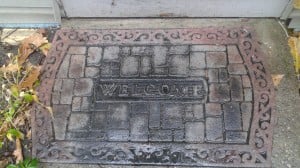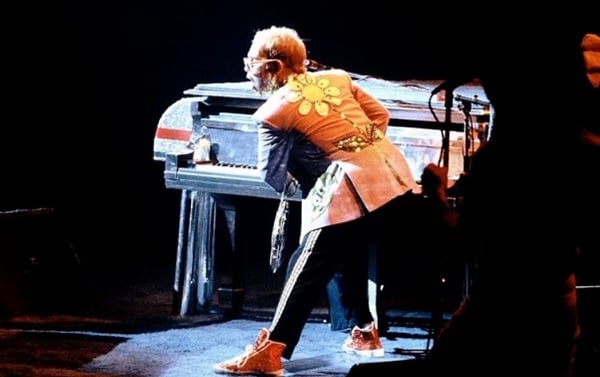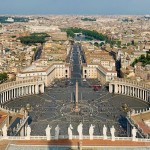 Pope Francis continues to surprise. On March 15, the second full day of his papacy, he signaled his desire to move forward the dialogue between Jews and Catholics which had its start during the Second Vatican Council.
Pope Francis continues to surprise. On March 15, the second full day of his papacy, he signaled his desire to move forward the dialogue between Jews and Catholics which had its start during the Second Vatican Council.
In a message to Dr. Riccardo Di Segni, the Chief Rabbi of Rome, the Holy Father said,
“On this day of my election as Bishop of Rome and Pastor of the Universal Church, I send you my cordial greetings, informing you that the solemn inauguration of my pontificate will take place on Tuesday, 19 March.
“Trusting in the protection of the Most High, I strongly hope to be able to contribute to the progress of the relations that have existed between Jews and Catholics since Vatican Council II in a spirit of renewed collaboration and in service of a world that may always be more in harmony with the Creator’s will.”
One may safely assume, then, that the Rabbi of Rome, which is the oldest Jewish community of the diaspora, has been invited and will attend the installation ceremony on Tuesday, March 19.
Pope Francis, formerly Cardinal Jorge Mario Bergoglio, has worked well with the Argentinian Jewish community during his years as Archbishop of Buenos Aires. The Times of Israel reports that in September 2007 Cardinal Bergoglio had attended Rosh Hashanah services at the Benei Tikva Slijot synagogue.

But even before that, the new pontiff had enjoyed a warm relationship with the Jewish community in Argentina. According to Rabbi David Rosen, director of interfaith affairs for the American Jewish Committee, after the bombing of the the Asociación Mutual Israelita Argentina (AMIA) Jewish community center in 1994, in which 85 people were killed, Cardinal Bergoglio “showed solidarity with the Jewish community.” In 2005, Cardinal Bergoglio was the first public personality to sign a petition for justice in the AMIA bombing case. He was also one of the signatories on a document called “85 victims, 85 signatures” which commemorated the bombing’s 11th anniversary. And in June 2010, he visited the rebuilt AMIA headquarters to talk with Jewish leaders. Rabbi Rosen described the new pope as a “warm and sweet and modest man” who has been known in Buenos Aires for doing his own cooking and personally answering his telephone.
Rabbi Rosen is not the only Jewish leader in Argentina to speak highly of the new Roman Pontiff. Israel Singer, the former head of the World Jewish Congress, remembers spending time working with Cardinal Bergoglio, distributing aid to the poor in Buenos Aires as part of a joint Jewish-Catholic program called Tzedaka. Singer said, “We went out to the barrios where Jews and Catholics were suffering together…. If everyone sat in chairs with handles, he would sit in the one without. He was always looking to be more modest.”
Pope Francis also wrote the foreword of a book by Rabbi Sergio Bergman, referring to him as “one of my teachers.”
And according to the Times of Israel, last November Cardinal Bergoglio hosted a Kristallnacht memorial event at the Buenos Aires Metropolitan Cathedral with Rabbi Alejandro Avruj from the NCI-Emanuel World Masorti congregation.
He also has worked with the Latin American Jewish Congress and held meetings with Jewish youth who participate in its New Generations program.
“The Latin American Jewish Congress has had a close relationship with Jorge Bergoglio for several years,” Claudio Epelman, executive director of the Latin American Jewish Congress, told the Jewish Telegraphic Agency. “We know his values and strengths. We have no doubt he will do a great job leading the Catholic Church.”
In his visit to the Buenos Aires synagogue, according to the Catholic Zenit news agency, Cardinal Bergoglio told the congregation that he was there to examine his heart “like a pilgrim, together with you, my elder brothers.”
“Today, here in this synagogue, we are made newly aware of the fact that we are a people on a journey and we place ourselves in God’s presence,” Zenit quoted the then-archbishop as saying. “We must look at him and let him look at us, to examine our heart in his presence and to ask ourselves if we are walking blamelessly.”

Renzo Gattegna, the president of the Union of Italian Jewish Communities, was pleased by the election of this humble pope. He expressed hope that the dialogue which was initiated during the Second Vatican Council, and which was furthered during the papacies of John Paul II and Benedict XVI, will continue. He congratulated the new pope on behalf of Italian Jews, with hope that his pontificate could bring “peace and brotherhood to all humanity.”
Pope John Paul II, who had grown up to see a flourishing Jewish culture, then lived through Nazi occupation and saw firsthand the dessimation of the Jewish people in his homeland, strove during his papacy to advance Catholic-Jewish relations. His 1994 statement, We Remember: A Reflection on the Shoa, offered a mea culpa for the role of Christians in the Holocaust.

Pope Benedict’s first official act as pope was to direct a letter to Rome’s Jewish community and he became the second pope in history, after John Paul, to enter a synagogue.











